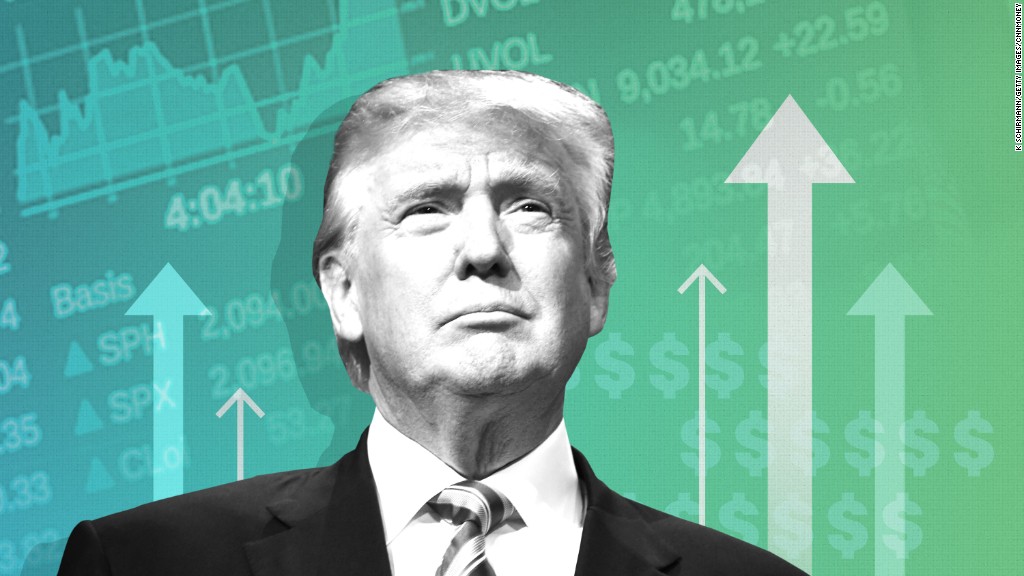
Christmas could come early in 2017 for Janet Yellen and the Federal Reserve.
President-elect Donald Trump is coming down the chimney with lots of spending and tax cuts.
For years, the Fed has propped up the U.S. economy, while Congress and the White House fought and got little done in gridlock. Yellen, the Fed Chair, has prodded Congress to step up spending to boost the economy.
"Fiscal policy should play a role," to stimulate growth, Yellen said in June. Translation: Help us out, Congress.
Now, Trump's White House and a GOP-controlled Congress promise to pave the way for a big, fiscal stimulus package, taking the load off the Fed's shoulders. Trump has promised to spend big on the nation's infrastructure and cut taxes for everyone.
These moves will come at a time when the Fed is already starting take a back seat. In December of last year, the Fed raised its key interest rate for the first time in almost a decade. And two years ago, the Fed stopped buying U.S. bonds, which it had been doing since the financial crisis to help keep interest rates low and stimulate the economy.
The Trump era will represent a tectonic shift in the driving force behind the economy.
"We have shifted from a monetary policy world to a fiscal policy world," says Joe Duran, CEO of United Capital, a financial advisory firm.
Related: 3 ways Trump can slap tariffs on Mexico and China
However, Yellen may want to be careful about what she wishes for.
Trump's proposed spending plan on infrastructure could spark a sleeping giant -- inflation. Increased spending on roads and bridges will drive up demand for all types of materials, which will push prices of goods higher.
If inflation does rear its head, it would throw cold water on Yellen's plans to raise rates "gradually," something she has promised for months. With higher inflation, the Fed would be forced to raise rates faster and at even higher increments than Yellen has promised.
After all, one of the Fed's key goals is stable prices.
Problem is, when the Fed shifts unexpectedly, markets don't tend to take the surprise well.
For instance, in 2013, when former Fed Chair Ben Bernanke hinted that the Fed would eventually stop buying up bonds to stimulate growth, markets nosedived across the world, especially in developing countries. The episode came to be known as the "taper tantrum."
Sure, the Fed wants to see inflation pick up a little. The Fed wants inflation to be at 2%. It's been around 1% this year.
Related: Trump will have huge sway over the Federal Reserve
In fact, low inflation is a major reason why the Fed has decided to keep rates so low. In the next year or two, a boost to inflation could be a good thing -- and long awaited. But too much of anything isn't good for the economy, especially inflation.
"The potential for higher inflation is much greater now than it was before the election," says Gus Faucher, senior economist at PNC Financial.
Trump is expected to have a major impact on the Fed in many ways -- whether through spending, tax cuts or, most likely, nominations.
Trump, who is no fan of Yellen, will nominate four Fed officials in the next 18 months, including the next chair and vice chair.
So, whether through higher rates, or a changing of the guard, Trump stands to turn the tide at the Fed.


